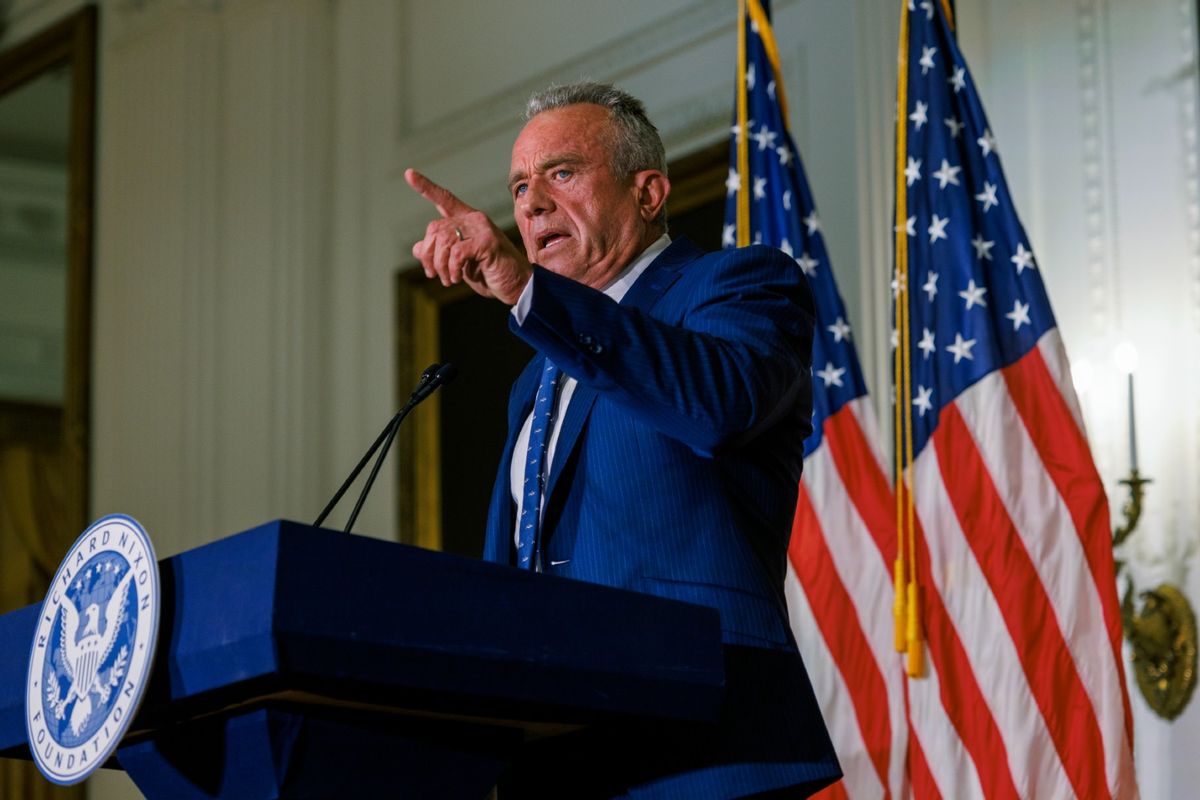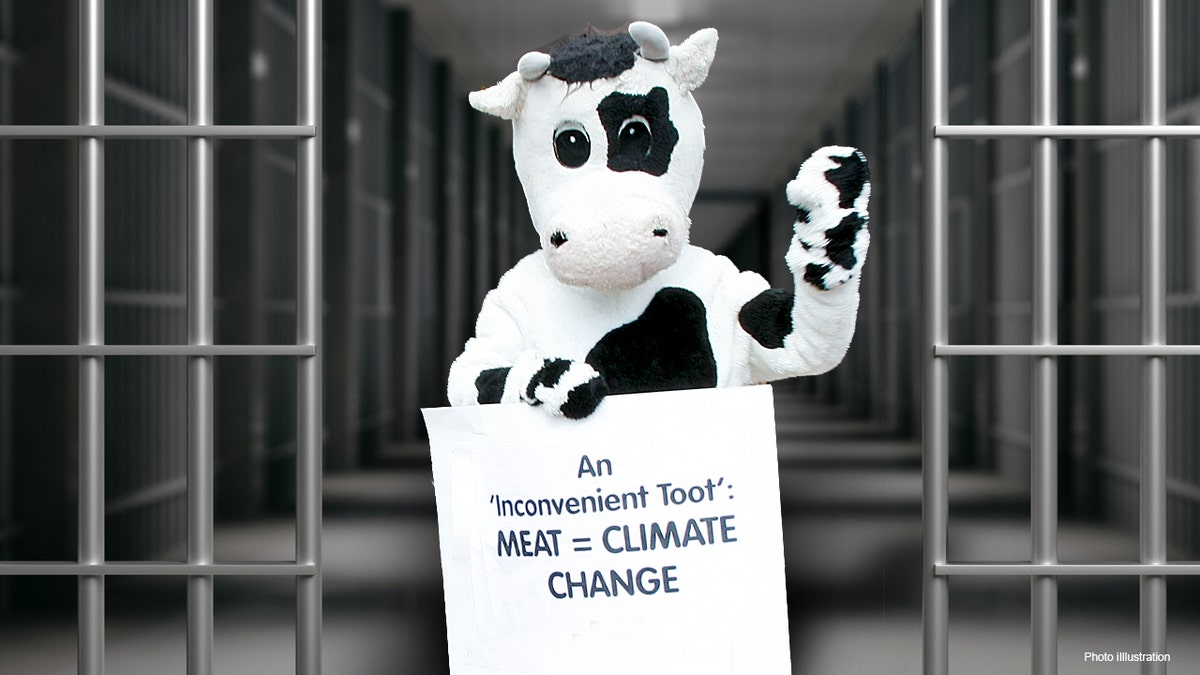How right-wing disinformation is fueling conspiracy theories about the 2024 election
Jun 20, 2024
PBS NEWSHOUR
By — Laura Barrón-López
By —Ali Schmitz
It’s been more than three years since baseless claims about the 2020 election inspired an attack on the Capitol, but the lies haven’t stopped. With less than five months until November, Donald Trump is at it again with help from right-wing media. Laura Barrón-López discusses the conspiracy theories and their impact with David Becker of the nonpartisan Center for Election Innovation and Research.
Full Transcript
Geoff Bennett:
It's been more than three years since baseless claims about a rigged 2020 election inspired an attack on the U.S. Capitol, but the lies have not stopped.
Laura Barron-Lopez is here with more — Laura.
Laura Barron-Lopez:
Thanks, Geoff.
Before and after the 2020 election, Donald Trump repeatedly sowed doubt about the legitimacy of the U.S. election system. Now, less than five months ago before November, he's doing it again. Here he is in the swing state of Wisconsin this week.
Donald Trump, Former President of the United States (R) and Current U.S. Presidential Candidate: The radical left Democrats rigged the presidential election in 2020, and we're not going to let them rig the presidential election in 2024.
(Cheering and applause)
Donald Trump:
And every time — we're not going to let them do it.
Laura Barron-Lopez:
And, much like last time, the former president has help from right-wing media.
Greg Gutfeld, FOX News Anchor:
What is up the Dems' sleeve to drag that body back into the White House? What's the dog that's not barking? And then let's say by some weird miraculous chance that we didn't see coming, given that Trump is ahead, has a 66 percent chance of winning, looks like he's going to get the electoral count, and Joe still wins.
Well, then what do you do after you win? How do you convince anyone that's real? Have they even thought of that? Like, even the Dems behind the scenes better hope he doesn't win, because no one's going to believe it.
Laura Barron-Lopez:
To separate fact from fiction, I'm joined by David Becker, executive director of the nonpartisan Center for Election Innovation and Research.
David, thanks so much for joining us.
Those two examples were just from recent days. The FOX News host, Greg Gutfeld, repeated his claim, saying that if President Biden wins in November, he will only win if there are — quote — "shenanigans," AKA cheating.
Debunk this for us.
David Becker, Executive Director, Center for Election Innovation and Research: Well, our elections, by every measure, are more secure, transparent, and verified than ever before.
We know this because we have more paper ballots than ever before. Over 95 percent of all voters in the United States are going to vote on verifiable paper ballots this fall, and that's the highest percentage ever. It was about 95 percent or so in 2020. Those ballots are audited. The machines are audited to make sure they were tabulated correctly.
Our voter lists are more clean than ever before, and we have more litigation but before and after the election to confirm the results and the rules than ever before. Our elections are very, very good in the United States. So people should know and can know that we will know the winner, and that winner will be correct.
Laura Barron-Lopez:
That spreading of disinformation by Republican politicians, Americans across social media, and right-wing media, is it worse this election cycle than previous cycles?
David Becker:
I think it's worse because of the cumulative effect that we have seen over about four years.
Of course, we had disinformation in the 2020 election cycle, especially during the pandemic, where people were isolated and alone, when people had strong opinions about the election. We saw record turnout, 20 million more ballots cast in 2020 than we'd ever seen in any election before.
There was a lot of disinformation spread, particularly after the election, by former President Trump after he had lost. But that election in 2020 was the most scrutinized election in American history. Roughly, perhaps 20 to 30 percent of the American public still thinks that the most secure, transparent, and verified election we have ever had there was something wrong with.
And that potentially could be problematic for 2024 and the aftermath.
Laura Barron-Lopez:
There's another big election conspiracy theory being spread by Republicans right now.
Donald Trump:
He's going to let everybody come in, because you know what they're trying to do? They're trying to sign these people up and register them. They're not citizens. They're not allowed to do it. It's illegal as hell. So what they're trying to do is they're trying to use all of these people that are pouring into our country to vote. What other reason?
Laura Barron-Lopez:
Trump isn't the only person saying this.
This week, in response to President Biden's action to streamline a pathway to citizenship for undocumented spouses of U.S. citizens, House Speaker Mike Johnson posted on X on June 18 — quote — "This is proof-positive of the Democrats' plan to turn illegal aliens into voters."
And FOX News hosts also claimed this week that 49 states are providing voter registration without showing proof of citizenship to undocumented migrants. What's the reality here?
David Becker:
The reality is that this is again a misstatement of what the law and the facts are here in the United States.
First, it is against the law for noncitizens to vote in federal elections. It has been for decades. It's very clear. It comes with criminal penalties. Second, every single voter in the United States to register to vote in a federal election has to provide I.D., almost always a driver's license number.
And thanks to REAL ID and other things, go on to your driver's bureau's Web site and see what you need to bring. You need to bring proof of legal presence, which will either prove that you're a U.S. citizen or you're a noncitizen who's here legally in most cases, in which case you shouldn't be registered to vote when that I.D. is checked against the database, which it is.
And we know this has been incredibly successful. We know that very, very few, if any noncitizens ever actually vote. And we know this because states like Georgia, Republican Secretary of State Brad Raffensperger did a complete audit of their voter list as recently as 2022, looked at all of those that he couldn't find proof of citizenship for in the database.
It was only about 1,500 statewide out of millions of voters. And the total number of those individuals who had voted in previous elections was zero. This is incredibly successful, we are, in terms of keeping noncitizens from voting. Very, very few noncitizens vote.
Laura Barron-Lopez:
Zero noncitizens in Georgia.
David Becker:
In Georgia in that one audit, yes.
Laura Barron-Lopez:
You work with Republican and Democratic election officials who administer elections and who oversee them. Is this disinformation directly impacting them?
David Becker:
Yes.
Their jobs are much, much harder now. They're having to face disinformation all the time. They're getting it in their offices. They're getting it at election meetings that are public. They're getting it through public records requests. They're requesting duplicative things that are just sucking up their bandwidth.
I have even heard from particularly Republican election officials that they're getting it in their communities, that, when they go to the grocery store or to their children's school or even to their places of worship, they have people who are accusing them of — engaged in a massive conspiracy with millions of people to overturn the will of the voters.
Laura Barron-Lopez:
What are the two big disinformation waves that you think are coming this election cycle?
David Becker:
So I think those waves are really divided by the close of the polls on election night.
We're going to see a wave before then that tries to influence voters, makes them think that voting is rigged or voting is hard, or that their particular polling place or method of voting might not be available to them to get them to self-suppress, to not show up to vote, even though they should still be able to vote.
People should be very skeptical and only rely upon official sources of information, their official election office in their county or locality or state.
And then, after the polls close, I think it's very likely we're going to see a really dangerous wave of disinformation that makes us to believe — that's really going to be focused on the losing candidate or the candidate that thinks he's losing, and is designed to make his supporters feel as if the election has been stolen.
This could lead to a lot of instability and chaos in the post-election period of time and potentially violence like we saw on January 6.

By —Laura Barrón-López
Laura Barrón-López is the White House Correspondent for the PBS NewsHour, where she covers the Biden administration for the nightly news broadcast. She is also a CNN political analyst.














